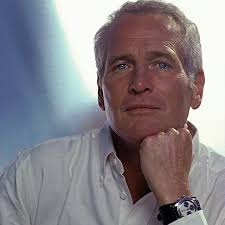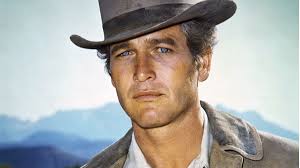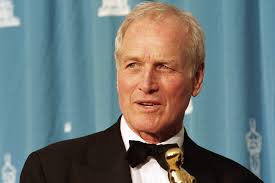
Image Courtesy : Forbes.
Paul Newman : Career in Broadway, Films & Racing.
Early Career and Broadway Success.
Newman’s journey to stardom began on the Broadway stage. In 1953, he made his Broadway debut in the original production of William Inge’s “Picnic” alongside Kim Stanley. This marked the beginning of his successful acting career, as he quickly gained recognition for his talent and stage presence.
During his time on Broadway, Newman showcased his versatility as an actor by taking on a diverse range of roles. He captivated audiences with his commanding stage presence and ability to bring complex characters to life. Critics praised his performances for their depth and authenticity, establishing him as a rising star in the theater world. One of Newman’s most memorable Broadway performances came in 1955, when he starred in the critically acclaimed production of Tennessee Williams’ “Cat on a Hot Tin Roof.”
His portrayal of the troubled character Brick Pollitt garnered widespread acclaim and earned him a Tony Award nomination for Best Actor. This role solidified Newman’s reputation as a talented and versatile actor, capable of delivering powerful performances that resonated with audiences. Following his success in “Cat on a Hot Tin Roof,” Newman continued to shine on the Broadway stage. He took on a variety of challenging roles, including the iconic character Stanley Kowalski in a revival of Tennessee Williams’ “A Streetcar Named Desire.”
Once again, Newman’s performance was met with rave reviews, further cementing his status as one of Broadway’s brightest stars. In addition to his impressive acting skills, Newman also showcased his musical talents during his time on Broadway. He wowed audiences with his singing and dancing abilities in the hit musical “West Side Story,” where he played the charismatic Tony. His performance in the production was a testament to his versatility as an entertainer, and it further endeared him to theatergoers.
Newman’s success on the Broadway stage not only solidified his reputation as a talented actor but also opened doors for him in the world of film. His captivating performances caught the attention of Hollywood producers, who recognized his potential as a leading man. With his sights set on conquering the silver screen, Newman bid farewell to Broadway and embarked on a new chapter in his career. Little did he know that his foray into film would lead to even greater success and establish him as one of the most iconic actors of his generation. But it was on the Broadway stage where Newman honed his craft and laid the foundation for the legendary career that would follow.

Image Courtesy: First for women.
Following his breakthrough in Hollywood, Paul Newman continued to receive critical acclaim for his performances in various films. In 1961, he starred in “The Hustler,” a drama about a talented pool player, for which he received his second Academy Award nomination. Newman’s portrayal of the complex and troubled character Fast Eddie Felson was widely praised by critics and solidified his reputation as a versatile actor.
Throughout the 1960s and 1970s, Newman continued to deliver exceptional performances in a range of roles. In 1963, he starred in “Hud,” a Western drama that earned him his first Academy Award for Best Actor. His portrayal of the rebellious and morally ambiguous character Hud Bannon showcased his ability to bring depth and complexity to his roles.
Newman’s success extended beyond acting as he ventured into directing. In 1968, he made his directorial debut with the film “Rachel, Rachel,” which starred his wife Joanne Woodward. The film received critical acclaim and earned Newman an Academy Award nomination for Best Director, further solidifying his talent and versatility in the film industry.
As the years went by, Newman continued to captivate audiences with his performances. In 1986, he starred in “The Color of Money,” a sequel to “The Hustler,” reprising his role as Fast Eddie Felson. This film not only reunited Newman with his iconic character but also brought him his first Academy Award for Best Actor, cementing his status as one of Hollywood’s most respected and talented actors.
Outside of his acting career, Newman was also known for his philanthropy and activism. He co-founded Newman’s Own, a food company that donated all of its profits to various charitable organizations. Through his philanthropic efforts, Newman made a significant impact on the lives of many people and became a respected figure both in and out of the entertainment industry.
Paul Newman’s legacy as an actor, director, and philanthropist continues to inspire and influence generations of performers. His dedication to his craft, remarkable talent, and commitment to making a positive difference in the world will always be remembered and cherished.
Award Winning Performances and Iconic Films.
Throughout his career, Newman delivered numerous memorable performances and starred in a wide range of films. Here is a selection of some of his notable works:
“Cat on a Hot Tin Roof” (1958)
“The Hustler” (1961)
“Sweet Bird of Youth” (1962)
“Hud” (1963)
“Torn Curtain” (1966)
“Cool Hand Luke” (1967)
“Butch Cassidy and the Sundance Kid” (1969)
“The Sting” (1973)
“The Towering Inferno” (1974)
“Slap Shot” (1977)
“Fort Apache, The Bronx” (1981)
“Absence of Malice” (1981)
“The Verdict” (1982)
“The Color of Money” (1986)
“Mr. and Mrs. Bridge” (1990)
“The Hudsucker Proxy” (1994)
“Nobody’s Fool” (1994)
“Road to Perdition” (2002)
Newman’s performances in these films showcased his versatility as an actor and solidified his status as a Hollywood legend.

Image Courtesy: New York Post
One of Newman’s most acclaimed performances was in “The Hustler” (1961), directed by Robert Rossen. In this film, Newman portrayed the character of “Fast” Eddie Felson, a talented pool player with a self-destructive streak. His portrayal of Felson earned him an Academy Award nomination for Best Actor, solidifying his reputation as a serious actor.
Another iconic film in Newman’s career was “Butch Cassidy and the Sundance Kid” (1969), directed by George Roy Hill. In this Western comedy, Newman starred alongside Robert Redford, playing the role of Butch Cassidy, the leader of the infamous Hole in the Wall Gang. The film was a massive commercial success and further cemented Newman’s status as a leading man in Hollywood.
Newman’s collaboration with director Martin Scorsese in “The Color of Money” (1986) also garnered critical acclaim. In this film, Newman reprised his role as “Fast” Eddie Felson, now older and wiser, mentoring a young pool player played by Tom Cruise. Newman’s performance earned him an Academy Award for Best Actor, marking a significant milestone in his career.
In addition to his acting prowess, Newman also made a name for himself as a philanthropist and race car driver. He established the Newman’s Own food company, which donates all profits to charity, and competed in professional racing events, even winning several championships. Newman’s multifaceted talents and contributions to various fields solidify his legacy as a true Hollywood icon.
Academy Awards and Honorary Recognitions.
Newman’s talent and dedication were recognized by the film industry throughout his career. He received Academy Award nominations in five different decades, a testament to his enduring talent and versatility.
In addition to the awards he won for specific roles, Newman won an Academy Award in 1986 for his role in “Color of Money” which he did not receive citing he will win if he stays out because earlier 5 times when he was nominated he did not win an Oscar as he was present to receive it. exceptional screen performances. This recognition highlighted his contributions to the art of filmmaking and his impact on the industry as a whole.
Furthermore, Newman’s philanthropic work was acknowledged with the Jean Hersholt Humanitarian Award in 1994. This prestigious award honored his efforts to make a positive difference in the world and his commitment to various charitable causes.
In 1992, Newman and Joanne Woodward, his beloved wife and fellow actor, were bestowed with the Kennedy Center Honors. This recognition celebrated their outstanding contributions to the performing arts and their enduring legacy in the industry.
Additionally, Newman and Woodward were recipients of the Award for Greatest Public Service Benefiting the Disadvantaged in 1994, an annual accolade presented by the Jefferson Awards. This award recognized their tireless efforts to improve the lives of those in need and their dedication to creating positive change in society.
Newman’s impact on the film industry and society at large cannot be overstated. His talent, philanthropy, and commitment to making a difference continue to inspire and resonate with audiences around the world.
Paul Newman’s legacy will forever be remembered, not only for his remarkable performances on screen but also for his compassion, generosity, and unwavering dedication to making the world a better place.
Furthermore, Newman’s philanthropic work extended beyond the film industry. He co-founded Newman’s Own, a food company that donates all of its profits to charitable organizations. The company’s success allowed Newman to contribute millions of dollars to various causes, including education, healthcare, and the environment.
Additionally, Newman was actively involved in the Hole in the Wall Gang Camp, a nonprofit organization he established in 1988. The camp provides a unique summer camp experience for children with serious illnesses, allowing them to participate in activities and enjoy a sense of normalcy despite their health challenges.
Moreover, Newman’s commitment to social and environmental causes was evident in his advocacy for renewable energy. He was an early adopter of solar energy, installing solar panels on the roof of his home and pioneering the use of clean energy in the film industry.
Throughout his life, Newman used his fame and fortune to make a positive impact on the world. His philanthropic endeavors and dedication to creating a better future continue to inspire individuals and organizations to this day.
Frequently asked questions
Paul Newman is outstanding talented actor who has delivered very memorable movies like “The Hustler”, Butch “Cassidy and Sundance Kid” and “The Color of Money”.
Paul Newman died of Lung Cancer in 2008.
Paul Newman first met Joanne Woodward in the Broadway play “Picnic” in 1953, in the year 1958 they tied the Knot.
For starring in the movie “The Silver Chalice” Paul Newman apologized through ads in 1963.
Paul Newman gave his two watches GMT-Master and a Cosmograph Daytona, to the stuntman Stan Barrett.
Paul Newman won an Oscar in 1987 for his role in “The Color of Money,” he did not show up to receive it coz he had lost interest because he was cahsing it for long and he did not receive it.
